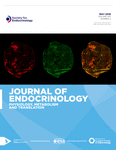Herpes simplex virus type 1 infection and glucocorticoid treatment regulate viral yield, glucocorticoid receptor and NF-kappaB levels
Abstract
The interplay between the endocrine and immune systems has come into focus in recent years with the insight that endocrine parameters may affect susceptibility to both auto-immune and infectious diseases. Our interest in immunoendocrine regulation led us to investigate the effects of glucocorticoids on Herpes simplex virus type 1 (HSV-1) infections. Glucocorticoids used to treat inflammatory conditions are not yet recommended for HSV-1 therapy, since they have been reported to prolong viral shedding both in vivo and in vitro. Here we report that glucocorticoids did not alter the viral yield in human gingival fibroblast (HGF) cell culture when glucocorticoid treatment and viral infection occured simultaneously, but the viral yield increased when cells were treated with the glucocorticoid dexamethasone (dex) prior to viral infection. We found that viral infection in our primary cell system increased NF-kappaB levels and DNA binding. In addition, the amount of glucocorticoid receptor (GR) increased following viral infection, and HSV-1 infection as such could induce glucocorticoid-driven transcription of a reporter gene in human embryo kidney (HEK) 293 cells stably transfected with GR. Dex treatment did not affect HSV-1-induced binding of p65 to an NF-kappaB element in an electrophoretic mobility shift assay, and acyclovir was still efficient as an anti-viral drug in the presence of dex. Further studies of the observed effects of HSV-1 infection and glucocorticoid treatment on GR and NF-kappaB regulation could give insights into the immunoendocrine mechanisms important for defence and therapy against viral infections.











